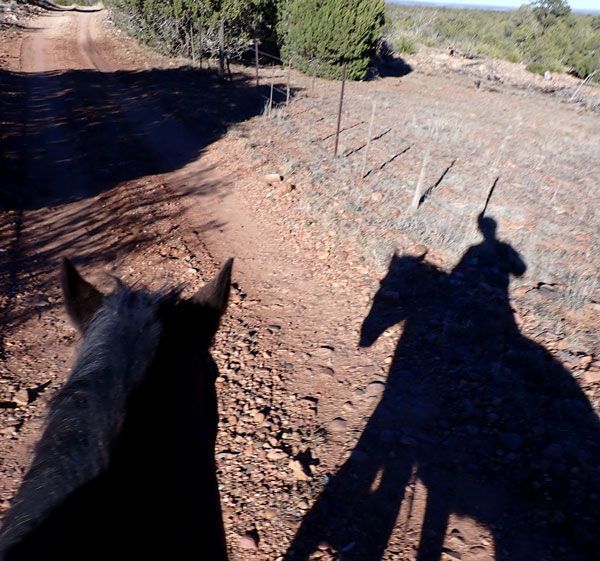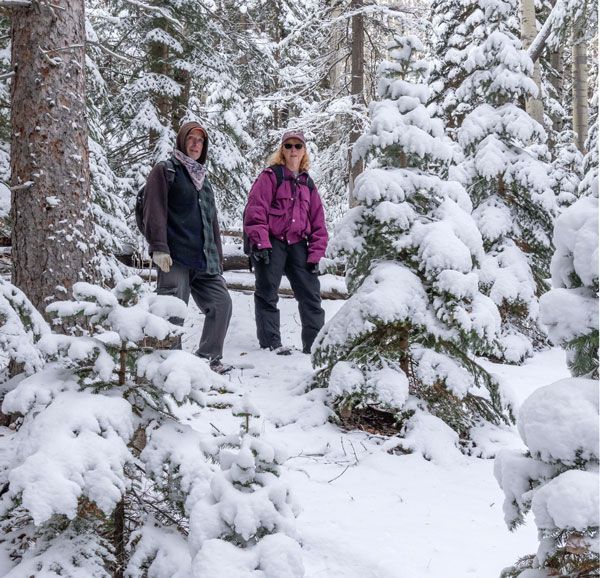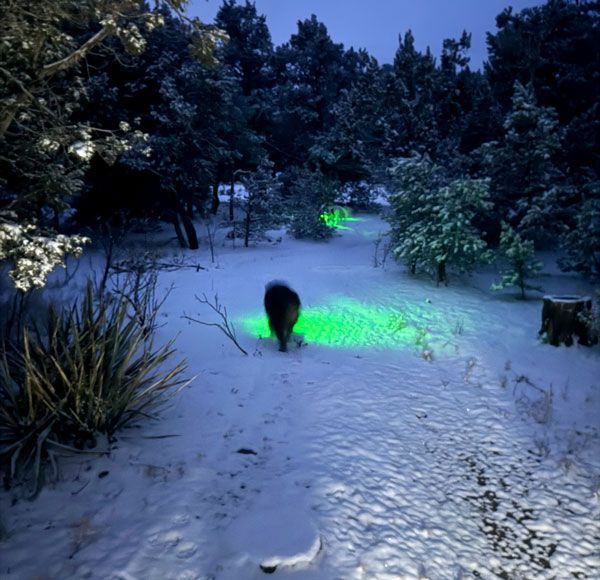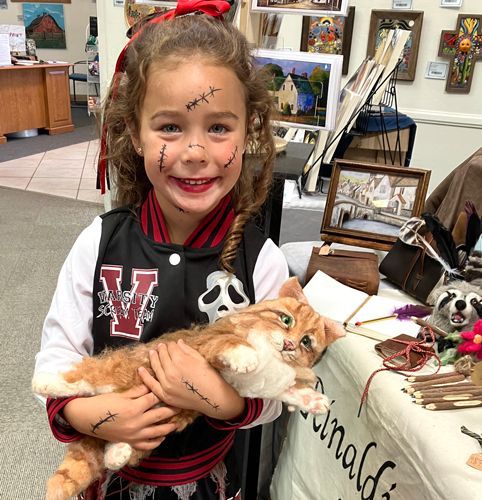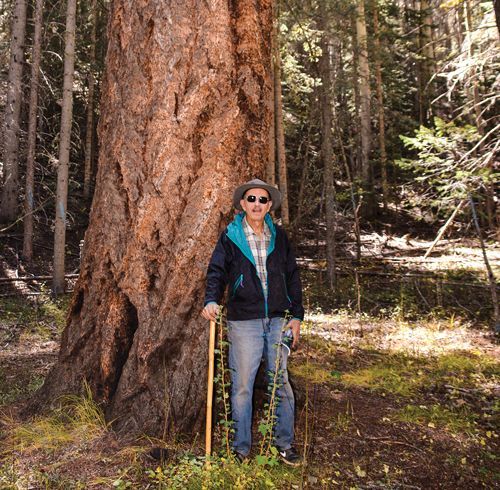A horse and a dog and the differences...
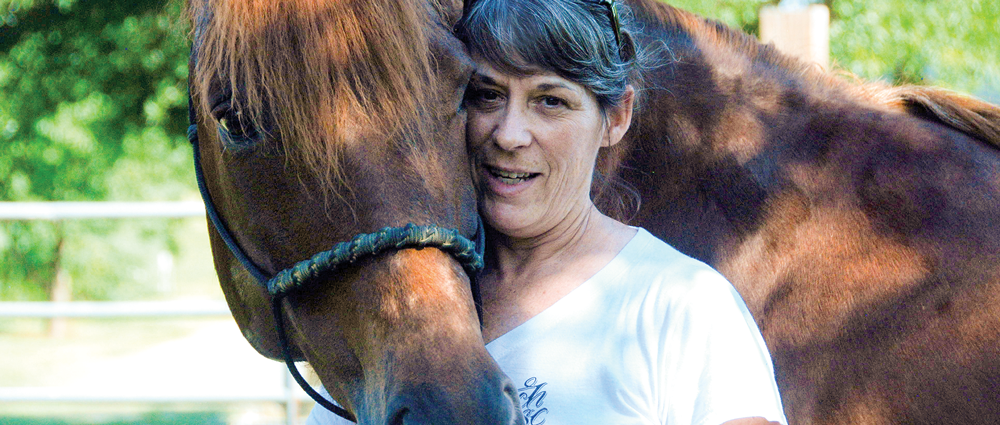
By Allanna Lea Jackson
When trail riding, I often meet hikers with dogs. They generally get off the trail as they should, probably because horses are big enough to intimidate people who aren’t familiar with them. Some people tell their dog(s) or even their small children, the horse “is just a really big dog.” I don’t think anybody is fooled by this piece of fiction though it is useful for safely sharing the trail.
Dogs and horses are both social species who are willing to get along with other species, but the social order and communication within a dog pack is not the same as a horse herd. Both species respond better to positive training than negative training. Both horses and dogs can form strong bonds with the people they trust, as well as within their own pack or herd. If dogs are man’s best friend, horses are man’s most loyal servant. Despite these similarities, horses and dogs have very different mentalities and instincts.
A quick internet search for “dog training” immediately hit 10 articles focused on the importance of curbing and re-directing the innate aggressiveness of canines. These articles said dogs are predators who instinctively bark, charge, chase, jump, bite, and chew. I guess that explains why so many dogs seem to enjoy terrorizing lizards, squirrels, rabbits, and people walking on the far side of a public road minding their own business. Effective training redirects these instincts into the positive behaviors that contribute to dogs being “man’s best friend.” I admire service dogs, working or sporting dogs, therapy dogs, and companion dogs that have been well-trained for positive activities they enjoy. I just wish all dogs were so well-trained and socialized.
A quick internet search for “horse training” yielded ads for tack stores, internationally famous clinicians, and a few local horse trainers, though the internet’s definition of “local” encompassed a radius of 500 miles. That was surprising because many thousands of articles and books have been written about horse training. I’ve read hundreds of them and written several articles and a book about horse training myself.
In our mechanized, digitized society more people have more dogs than horses. After all, you can’t keep a horse in your apartment, condominium, town home, or quarter-acre suburban backyard. Yet horses are still used for work, sport, pleasure, physical and emotional therapy, leadership training, and yes, even as service animals.
Yes, horses are big. The average horse is 5 feet tall at the top of the shoulders, which is where we measure equine height, and weighs 1,000 pounds. Horses are strong, and have very quick reflexes, yet in some ways horses are quite fragile. Horses are very sensitive - they can feel a fly landing on their hair. Horses are experts at reading body language, even at a distance. They are so emotionally astute they respond to and mirror human emotions that the person may not be aware of. But horses are not aggressive! Horses are prey animals with high situational awareness and very wary of anything that might be dangerous. When a horse feels threatened it runs away. Curiosity might bring the horse back to reassess the situation later. Most horses are very willing to do whatever humans ask of them. In the rare instances when a horse resorts to aggression it is defending itself.
Horses willingly follow a trustworthy leader to find food, water, shelter, and keep them safe and comfortable. Some scuffling between horses occurs to establish herd order and stallions will fight over mares, which is dangerous for the horses and anything else that gets in the way. However, the calm, steady, trustworthy horse is the leader, not the toughest, scariest, bully nor the flightiest airhead.
Horses do think. They easily learn patterns. Horses are capable of very simple reasoning and making some generalizations. Some of the associations horses make are not what we humans expect. Because of the way a horse’s eyes are positioned, what the horse learns and experiences on its left side is not the same as its right side. Horses also have very keen hearing. The way horses perceive the world has both advantages and disadvantages when training and using horses. Horses learn very quickly. A frightening or painful experience is indelibly imprinted in the horse’s memory and may never be fully overcome. Pleasant experiences build the trust and confidence we need to handle horses safely. It takes multiple positive experiences to overcome a horse’s innate wariness and build its confidence. One negative experience can set the horse’s training back several steps.
Good horse trainers minimize negative experiences with good planning and positive methods to make the training safer for everyone. Though we can’t always prevent negative experiences, such as a gust of wind blowing a plastic bag in circles under the horse’s chin. The horse trainer needs to be as situationally aware as the horse is, and be intentional about what the horse learns. Horses need to practice new skills and need multiple positive experiences to solidify their training, but they do not need to be drilled with dozens of repetitions in a single session. Too much repetition becomes a negative experience for the horse.
We cannot eliminate the instinctive prey behavior of horses just as we cannot eliminate the instinctive predator behavior of dogs. For both species we manage their instincts by redirecting the behavior into safer expressions. It’s quite astonishing how many frightening things horses learn to tolerate. However, we can’t desensitize horses to everything in the environment that might frighten them and attempting to make a horse totally spook-proof has unintended negative consequences. The better way to deal with equine anxiety is to become the horse’s trustworthy leader. Why? Because a trust relationship transfers to all locations and situations. Trust is built with kind, calm, consistent, horse-logical, step-by-step training that respects the intelligence, sensitivity, and willingness of the horse.
Well-behaved dogs and horses have handlers who have invested the time, patience, consistency, and self-discipline involved in building a positive relationship with their animal.


